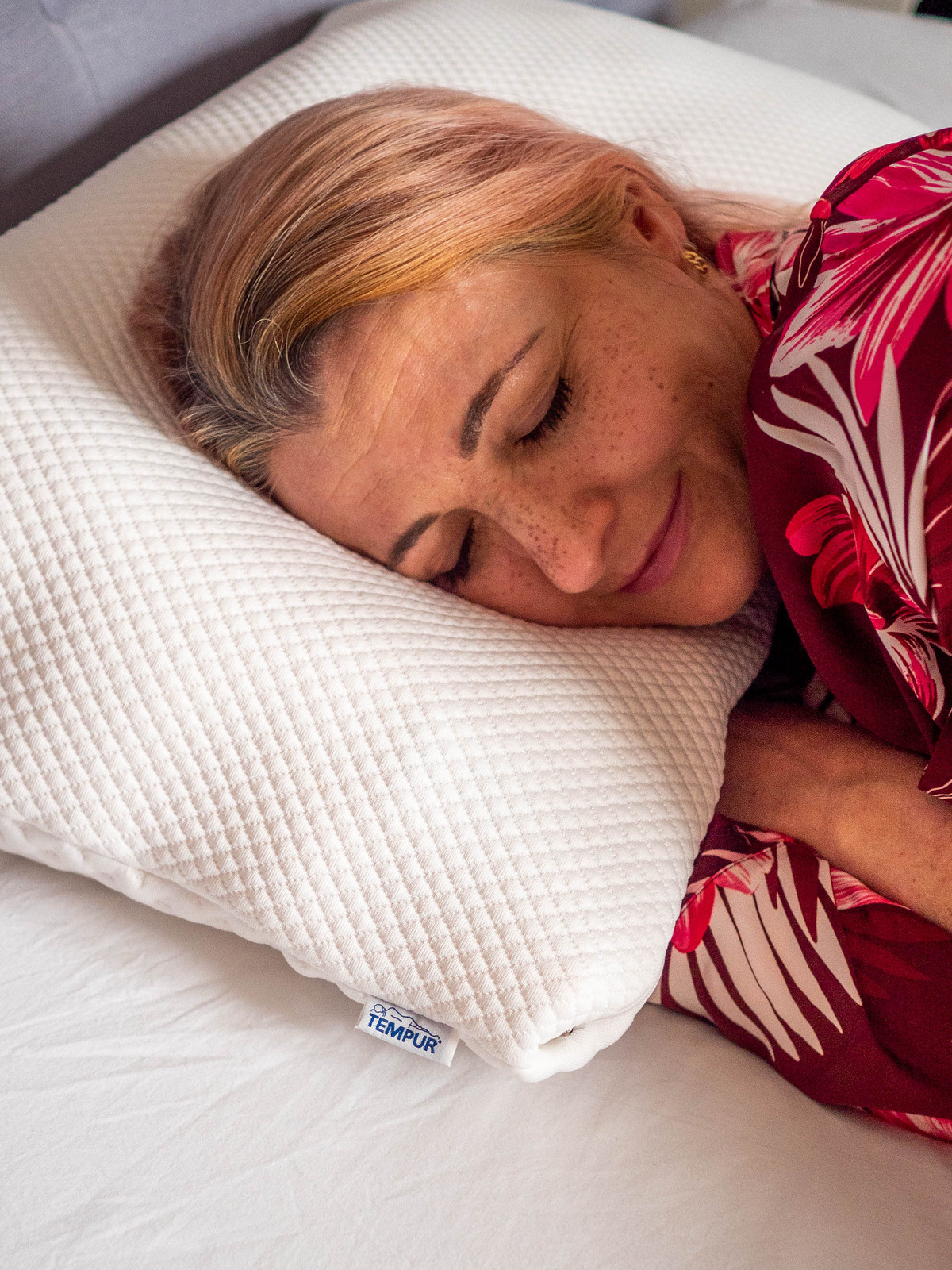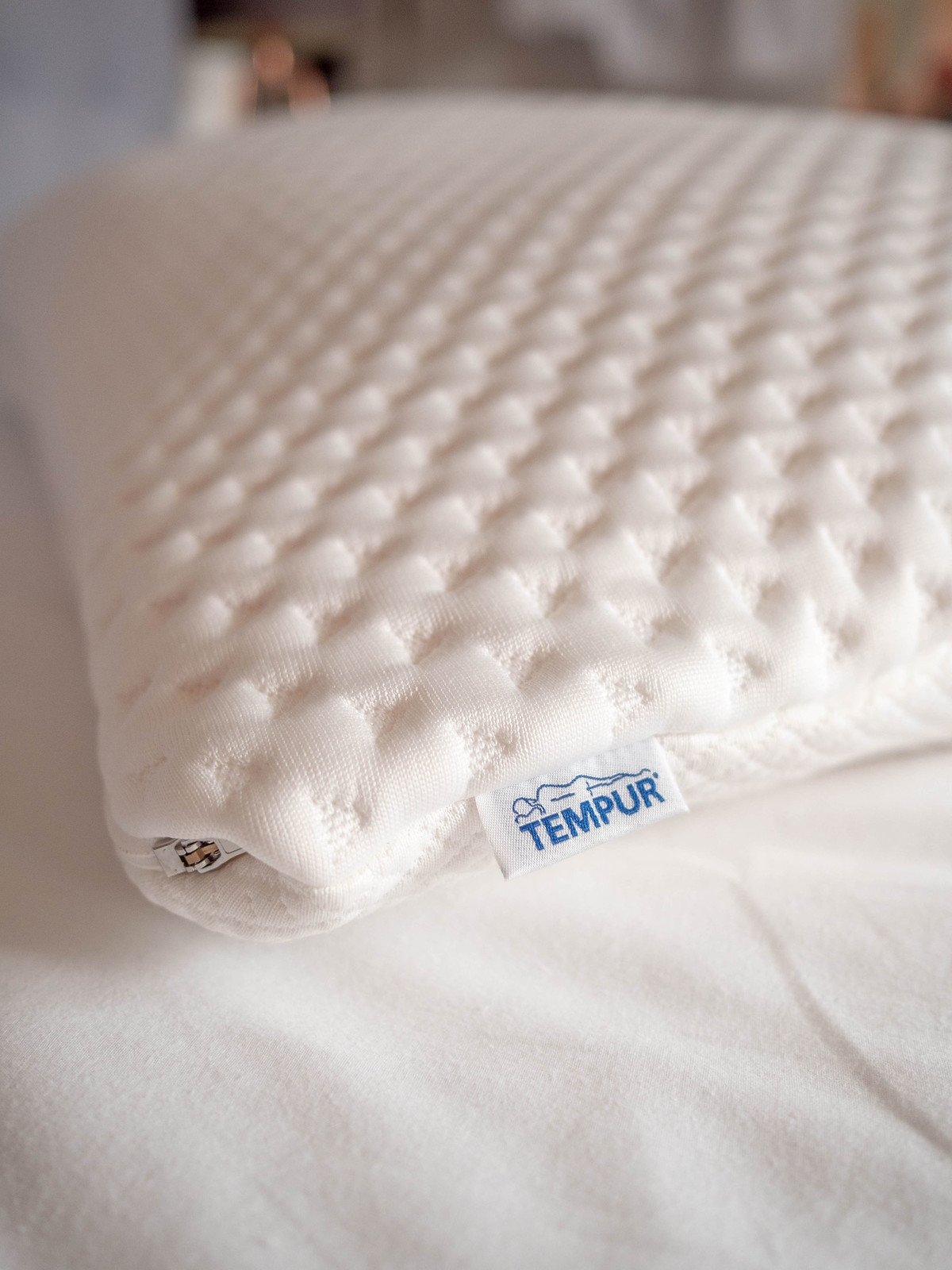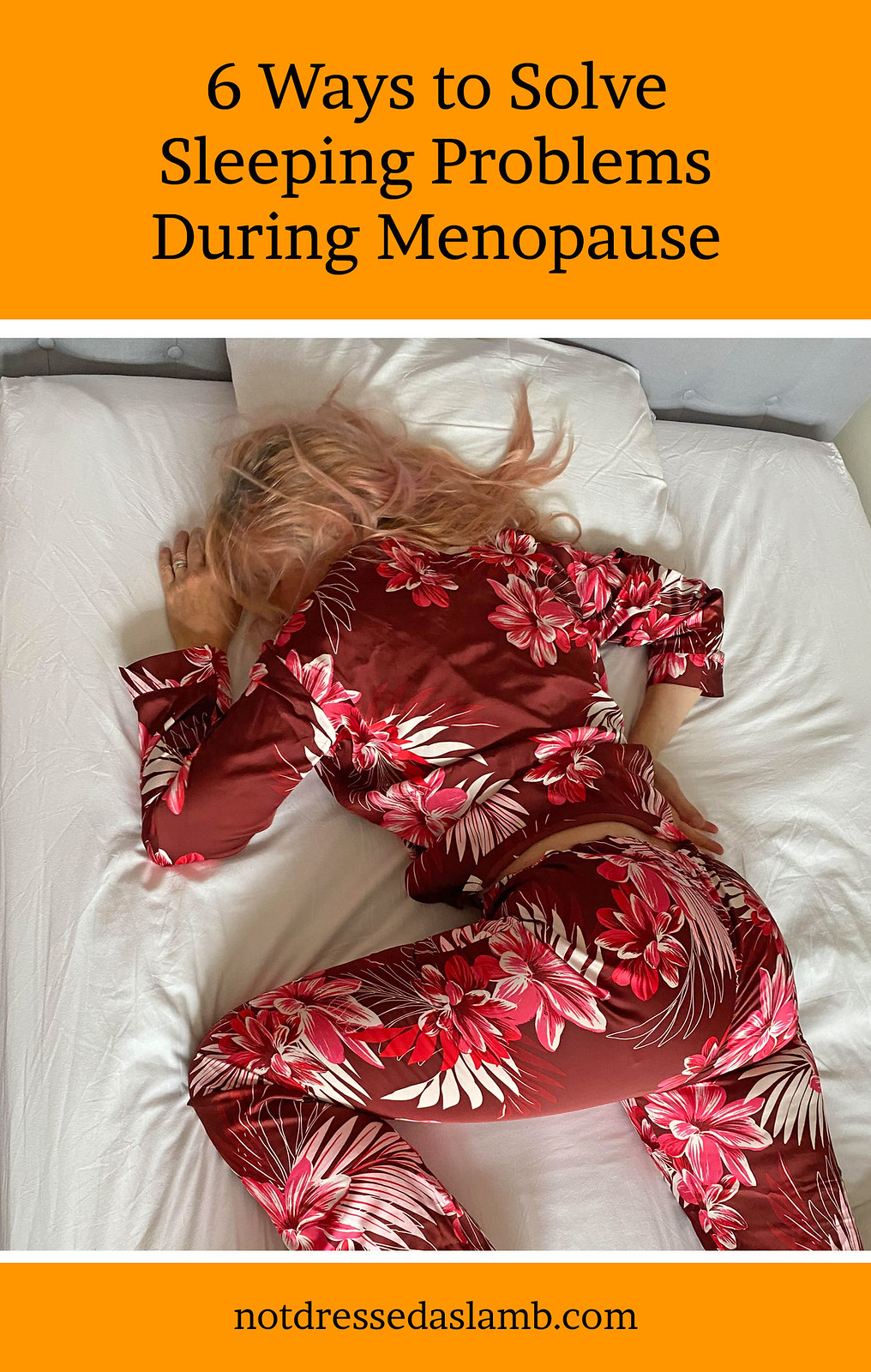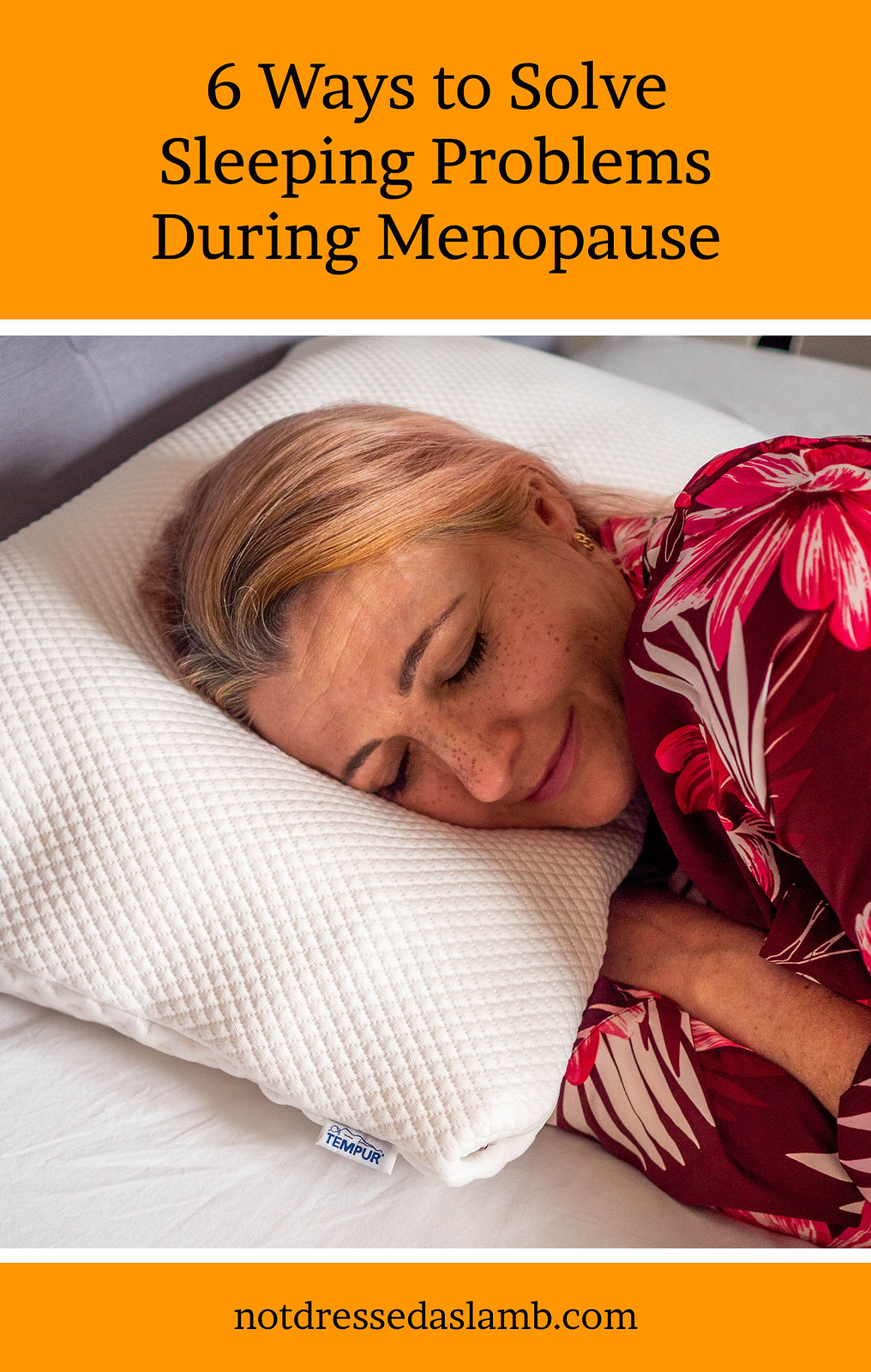
Ad | Menopause, perimenopause, sleeplessness and night sweats. They pretty much go hand in hand, don’t they?
I have talked before about menopause – it’s no secret that I am currently in perimenopause and ‘enjoying’ (note the heavy sarcasm) all the delights that come with this stage of life.
But how great is it that we talk so much more about menopause today? It’s becoming less and less taboo. And although we still have a very long way to go in terms of society’s acceptance and understanding towards women going through what is a perfectly natural but difficult time in their lives, things ARE improving.
October is Menopause Awareness Month and, fittingly, this week (18 October) we had World Menopause Day. Let’s talk about it, and then let’s talk some more. If you’ve never discussed it with your friends or your colleagues or your sister or your mother, please start.
Most importantly, talk about it with your daughters – AND your sons. I wish that someone in my (heavily female, and one where I’m the youngest) family had discussed it with me years ago. I wish I knew then what I know now, and I wish that all the men in my life had been educated about it as well. If men were educated about menopause we might then have more sympathetic and more understanding husbands, brothers, fathers, bosses and politicians.
And even (though I hate that this is so often true) more sympathetic doctors.
[Reading time: 9 mins]
Disclosure: This is a paid partnership with TEMPUR® (all content is 100% original and honest). Full disclosure
So what’s happening at the moment? In the UK, the presenter Davina McCall has become synonymous with menopause following her eye-opening documentaries Sex, Myths and the Menopause and Sex, Mind and the Menopause and subsequent book Menopausing.
Menopause-specific skincare products are being advertised on TV.
Blogging and social media have meant that women openly write and talk about their meno symptoms and struggles.
It’s all a step in the right direction.
As for me, I’ve been having a hard time as of late. I turned 50 in July and while I embrace all that wisdom and life experience and the Yesssss it’s ma birthday!! celebrations, I’ll be honest and say that I’m not exactly jumping for joy every time my joints ache, my period comes again after just 17 days or I’m lying awake at 3am willing my eyelids to JUST STAY SHUT, WILL YOU…
Menopause symptoms
I recently read an article that stated there are 62 different symptoms of menopause. Yes, SIXTY TWO. I tried to name as many as I could [that I knew about] before reading the list, and I came up with:
- Night sweats
- Hot flushes
- Insomnia
- Increased/decreased frequency and heaviness of periods
- Brain fog
- Anxiety
- Low mood
- Irritability
- Joint pain/stiffness
- Vaginal dryness
- Decreased libido
- Weight gain
- Fatigue and lethargy
- Dry skin
It’s kinda depressing that I can relate to many (most?) of those, and many more on the list in that article that I hadn’t associated with menopause: Tinnitus. Watery eyes. Palpitations. Urinary urgency (ESPECIALLY about 15 minutes after getting into bed and having already done my last wee. What’s that all about?!).
And talking of getting to bed, I think messed up sleep can be one of the most debilitating symptoms of all. Sleep affects EVERYTHING you do both positively and negatively, whether it be quality sleep, bad sleep or no sleep at all. It is SO important to get good sleep, and enough of it, regularly. It has a knock-on effect on and impacts every part of your day and general well-being.
I was, therefore, very happy that TEMPUR® – creators of the TEMPUR® material products (mattresses, pillows and beds) – asked me to write about sleep and the menopause. It’s a great opportunity to talk more about menopause and break down the barriers we face when it comes to dealing with these major changes.
Did you know that 1 in 10 women actually leave their jobs due to their menopause symptoms and that 75% transition through menopause whilst still working? If you consider the most commonly known-about symptoms of menopause (night sweats, hot flushes and what used to unsympathetically be called “mood swings”), it’s no wonder women are being forced out of the workplace, in some cases unwillingly.
But no one should be suffering in silence. No one should “grin and bear it” in that very British way, struggling on till the symptoms are SO bad that we eventually go and see a doctor, because look at those statistics! 10% of women leave their jobs because of something that half – HALF! – the world’s population go through! It’s a percentage that needs to be eradicated, not just lowered.
Anyway, back to the topic of today: SLEEP. How do menopausal women get more of it? How do we make our sleep quality sleep? How do we get any sleep at all considering all the crappity-crap-crap we got going on with our bodies and our brains and life circumstances at this stage in our lives?
Here are the 6 ways to solve sleeping problems during menopause that I can thoroughly recommend…
1. Consider a TEMPUR® mattress and pillow
A new mattress can be one of the best purchases you’ll ever make. (Experts are not joking when they say that as you spend a third of your life in bed you should buy well when it comes to a mattress. If you’ve ever spent a night away from home and the mattress was awful, you’ll never forget that night of bad sleep.)
But a temperature-controlled TEMPUR® mattress might just make you want to buy a new pair of silk pyjamas, thank the holy gods of menopause and then, upon waking, dance round the room singing Oh, What a Beautiful Morrrrr-ning! at the top of your lungs [disclaimer: this is not part of the TEMPUR® guarantee, but you never know, it could happen]. Their reviews and the fact that they offer a 10-year mattress guarantee and 100-night trial does make them a company you should consider.
Do not underestimate the power of the TEMPUR® material. Do not underestimate the effect a kick-ass quality mattress and pillow can have on your ability to get an excellent night’s sleep.
For this post, I was sent a TEMPUR® Comfort Original pillow to test out. And ermahgerd, it’s the doggy’s doo-dahs of pillows. The TEMPUR® material feels so satisfying under your head and neck. There’s no endless plumping of the pillow, trying to get it just right to get comfortable and help you sleep. It moulds to the contours of your neck and head, is super firm but then allows your head to just squish into it (if that makes sense).
This is what the mattresses do, too. I can’t think of anything better.

Now, I know that the financial climate at the moment means that for many, big purchases have to be carefully considered or even sacrificed. Thankfully, TEMPUR® offer 0% finance options so that you can invest in something that will aid one of THE most important parts of your health and well-being without having to work out how you’re going to afford to pay for that investment.
The 0% finance options won’t keep you up at night worrying about the cost, that’s for sure (oh the irony, if that were the case). TEMPUR® offer:
- 0% finance for up to 2 years
- 100-night mattress trial
- Free UK mainland delivery
- 10-year mattress guarantee
- 3-year pillow guarantee
- Clearance mattresses
Keith and I invested in a new mattress last year* using finance options. We KNEW we needed a new mattress, and knowing that it could be paid off over a long period meant that we could go ahead and invest in something so important for our health.
It was the best decision EVER.
*this was not through any gifting or collaboration with TEMPUR®.
2. Speak to your doctor about HRT
I describe taking HRT as a “no-brainer game-changer”. DESPITE being told by several people that HRT can sort out night sweats and DESPITE knowing that night sweats are a common symptom during perimenopause, it took me a while to put two and two together and go to the doctor to ask about it. I put up with at least a year of soaking sheets and sleeping on towels to try and prevent having to change our bedding every day.
Within a day of starting with my first HRT patch, the night sweats stopped. It was that instant.
So if you’re suffering from night sweats but (like me) not hot flushes – and even if you DO get the latter, then go to see your doctor now and discuss it. If you think you’re perhaps too young for perimenopause but you still have symptoms, go anyway. HRT is a lifesaver for so many women. It can take time to get it right, but that’s why you start it as soon as you’re thinking about it, not when your symptoms are so bad you don’t know how you’re even functioning on a daily basis.
3. Make sure your room is at the right temperature
They say that the best temperature for sleep is about 18°C/65°F. So if you have a room that’s a lot warmer than that PLUS the added bonus of a perimenopausal torso that radiates heat like it’s Mount Vesuvius, it’s a recipe for disaster. There’s no single piece of advice you should follow here in order to achieve the right temperature, but if you think your room may be too hot it might be worth actually getting a thermometer and taking a reading… the result may surprise you.
For example, we sleep with a window open all year round. I boil to death if the window is shut at night, even when it’s zero outside (and often end up with a headache in the morning). AC is uncommon in homes in the UK, so the summer can be a nightmare heat-wise. There are always challenges. But we have a new-build house (and, therefore, well-insulated) and our bedroom is upstairs (safer than the ground floor), but those sorts of factors are different for everyone. For example, when I lived in London and lived alone for a year, I couldn’t open my window due to being on the ground floor. It was a BIG security risk.
So do what you can to bring that temperature down. In winter I sweat far less when the air in the room is cool and I’m snuggled under several layers. Waking up in the night in a pool of sweat is NOT fun, and it’s horribly disruptive to your sleep.
4. Avoid stimulants before bed
I’ll say this till I’m blue in the face: PUT YOUR PHONE AWAY BEFORE BED. Everyone knows you shouldn’t do it, but I’ll bet your bottom dollar about 80% of people scroll away whilst sitting up in bed before turning out the lights.
Turning off devices like your phone and laptop that emit blue light at least an hour before bed so that your melatonin (the sleep hormone) levels aren’t suppressed is vital for good sleep. You can get blue light-blocking glasses, but if you’re like me and watch things on TikTok or Instagram that make you cry (e.g. sad things about animals), angry (e.g. anything to do with the cost of living crisis) or generally over-emotional then it’s not really a good idea to do that before you hit the hay anyway.
Even watching the news on TV can have the same effect. Too much light, too much mental stimulation, too much to get angry or upset about. We don’t have a TV in our bedroom – we’ve never wanted one there – but if you do, resist watching it then turning it off just before turning out the lights. Your mind will be filled with the wrong sort of stuff, and that’ll never help you if you’re having trouble sleeping.
If you must work on your laptop before bed, see if there’s a night mode setting (my PC has this, it sets the monitor at the lowest blue light level “to reduce impact to sleep”) – and religiously use that. But ideally, you want to be switching off all devices a good hour before lights out.
5. Don’t stress over insomnia
That’s easy for you to say, Catherine, I was staring at the ceiling last night till about 5:45am, then finally my eyes shut before my alarm went off at 6.
I get it, not being able to sleep is THE WORST. It’s a vicious circle: you don’t sleep, then you worry about not sleeping, then you don’t sleep because you’re worrying about not sleeping. And so on, and so on. Sometimes I can sleep for England, and sometimes I go to bed and think my eyelids are never, ever going to lower. I try, but they just ping! back open again.
But this is the thing: I’ve learned to gently accept, whilst lying in bed staring around the room, that I’m not going to go to sleep. You simply have to LET GO of the anxiety of not sleeping in an “oh, well…” kind of way. Because the more you worry about it, the more you’ll think negative thoughts. It’s true when they say that worrying about something doesn’t make the problem go away, you just heighten your anxiety.
It’s a cheesy cliché, I know, but that old chestnut whereby you visualise your happy place or a happy time really can help. If you’re getting anxious over not sleeping, you’ll inevitably think about all the other negative things in your life. Negativity breeds negativity. Train yourself to lie there and think, Okay, I’m not sleeping. Might as well think about an idyllic stroll on the beach at midnight on holiday in Greece/George Clooney wining and dining me in Lake Como/being ambushed by a litter of soft fluffy puppies and not being able to escape.
MUCH better than Ughhh I still haven’t put away all that laundry/how am I going to stay awake during my Zoom call tomorrow/what time do I have to get my elderly mother to the hospital on Friday.
And if you STILL can’t sleep, try this…
6. Learn a technique to make yourself fall asleep
I’ve read about lots of techniques for helping you fall asleep over the years, and this is mine. It’s a weird one, and it’s worked for me EVERY time I don’t feel even vaguely sleepy and my eyelids are not playing ball. In fact, I think it almost frightens me a bit when I think about how well it works because I remember NOTHING.
All you do is this: blink rapidly. That’s it.
But you have to keep blinking, blinking, blinking, blinking, blinking. Don’t stop. Even if you feel your eyes start to close rather than blink, BLINK AGAIN, and then blink some more. Fight the urge to keep your eyes shut.
What I find this method does is two things: 1) You’ll be concentrating so hard on blinking that you’ll forget about all your other worries (I promise you, it’s impossible to fret over your workload at the office tomorrow when you have to JUST KEEP BLINKING – you physically cannot blink AND worry about stuff), and 2) It literally forces your eyes shut and makes you tired, because your brain will go into panic mode and go, STOP BLINKING, WOMAN! WHAT ARE YOU DOING, THIS IS CRAZY! I’LL MAKE YOUR EYES SHUT IF IT’S THE LAST THI… zzzzzzzzzzzz
If you have trouble getting to sleep, try this technique. Please report back and let me know if it works for you. I’ll bet you 50p and a packet of crisps that it does.
✷ ✷ ✷ ✷ ✷
A final word about menopause
Menopause ain’t going anywhere. It’ll happen to us all. But the two best things we can do to make it easier for us (and our long-suffering partners!) are talking about it, and taking action. Don’t suffer in silence, and don’t skip the self-care. Go to your doctor for HRT. Avoid stimulants and accept that sometimes sleep will evade us.
And invest in a new mattress.
Knowing I’m doing all these things helps me sleep at night… pun intended 😉
Your turn – got any sleeping during menopause tips for us? Tell us in the comments…
Stay safe XOXO

P.S. I did not wake up like this (wearing mascara and eyebrows on point I mean). Plus I also usually put a pillowcase on my pillow… you need to SEE my lovely new TEMPUR® pillow here, don’t you, lol
Pin for later…

Linking up to… Monday: Stylish Monday (second Monday of the month), Inspire Me Monday, My Glittery Heart, On Mondays We Link Up || Tuesday: Style With a Smile, Trend Spin/Walking in Memphis in High Heels, Turning Heads Tuesday, Spread the Kindness, Confident Twosday, Happy Now Blog Link Up || Wednesday: WowOnWednesday || Thursday: Chic & Stylish, Ageless Style Linkup (third Thursday of the month), || Friday: Neverending Style, Fancy Friday, On the Edge, Fabulous Friday’s Link Up


Hi, here are some things that have helped peri-menopause for me. I’ll tell you that my most annoying symptoms have been migraines/headaches and heavy bleeding, which will not be the same for many.
Headaches: Mirena IUD – stopped the heavy bleeding, improving my low iron levels that were also causing headaches. Some gynos call the Mirena “the bridge to menopause.” I still get hormonal headaches, but only 24 hours before I’m about to bleed, instead of 10 days. The headache is the only indicator I will be starting my period now. It’s irregular.
Sleep: I take magnesium before bed. This also helps with headaches. It’s not the cure-all, but it doesn’t hurt. It might help with hot flashes as well. It helps with digestion issues, for sure.
Anemia: I take iron in the morning. I was up to a prescription level, but now that I’m not hemorrhaging, I can take a normal dose.
The pillow sounds and looks great. Thanks for sharing these tips!
xoxo
Lovely
I usually sleep really well but every now and then I’ll have a terrible night and feel dreadful the next day. I don’t suffer too much from night sweats but the joint pain has got quite bad over the last few months. I asked the doctor for HRT and was given Femoston tablets – I wanted patches but she said they weren’t suitable for me because I’d need progesterone too, and (I suspect the real reason) they’re in short supply. I’m now not taking anything and am seriously thinking of going private because my doctor’s practice is useless. A good mattress and pillow definitely help with sleep, we got a new mattress a few years ago and it made a huge difference. Thanks for joining in the link up.
Emma xxx
I’ve written about my problems with the peri menopause (starting when I was 45) and how HRT helped. Now I’m off HRT and glad to tell you that it does all go away! I still get a few hot flushes but nothing else. I’m now very vocal on LinkedIn about workplaces and how they need to accommodate menopausal women.
Tempur mattresses are fabulous, there’s one at my mum’s and I love sleeping on it. I bet the pillows are amazing too xx
Well done Catherine, you have covered everything. A great piece and such good information Jacqui x
Although I’m blessed with good sleep and have been post-menopausal and on HRT for 12 years, it’s wonderful to see you back! I’ve slept on a Tempurpedic mattress for all that time as well – I’m a believer…
What a great post, Catherine, with some really valuable tips. If I can’t sleep, I try meditating. Just clearing the mind and focussing on the breath. It works wonders. The other thing to do is the yoga ‘legs up the wall’ pose. You literally turn around and put your bum against the wall, bedhead, and put your legs up the wall. It’s incredibly relaxing, it’s good for so many things too.
I once worked in a health shop where we sold Tempur pillows and mattresses and I can honestly agree with what you said about them. They’re freaking amazing. In fact, why have I never bought one for myself?! Crazy…I think I shall put that on my Christmas list lol!
Big hugs
Suzy xx
This is so well written and informative Catherine
– thank you so much. I hace awful insomnia so these tips are really useful. Thank you xxx